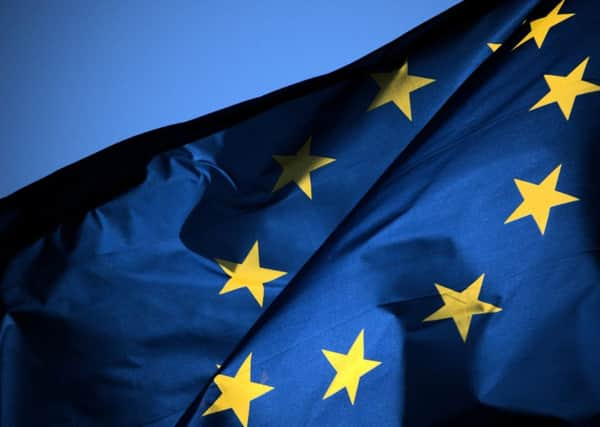The key to peace?


I did not in my letter downplay the role of NATO, which was clearly very important in keeping Western Europe safe from potential Soviet domination during the Cold War Years, and continues to play a vital role.
The difference between NATO’s role and that of the EU is that NATO is a military alliance; on the other hand the EU is an association of states who have chosen political, economic and cultural means to integrate their members, while maintaining their own distinctive identities, to make war between them unthinkable.
Advertisement
Hide AdAdvertisement
Hide AdBetween 1800 and 1945 there were at least four major conflicts between France and Prussia/Germany. Britain was drawn into all but the 1870 conflict.
If you were born in Strasbourg in 1870, you had changed nationality five times by the end of 1945. In that year Europe’s major cities were reduced to rubble, likewise most of its factories; its agricultural land had been ruined by tanks and armies, and millions of Europeans were living in refugee camps.
The Soviet Union had advanced its borders to occupy Eastern Europe and a third of Germany. NATO was key in preventing a further advance of Soviet power.
In Western Europe, six countries who had been on opposing sides in WW2 decided to start to integrate their basic industries to form the Iron and Steel Community, to ensure that the two biggest powers, France and Germany, could not again build up armaments against each other.
Advertisement
Hide AdAdvertisement
Hide AdThey then formed the Economic Community in 1957 and gradually more countries joined to form what is now the European Union.
The Heads of Government and Ministers meet on a very regular basis, the elected Members of the European Parliament meet every week to work on proposals for legislation brought forward from the Commission, and differences can be sorted out and friendships are built up in a committee room in Brussels or Strasbourg.
As I said in my previous letter, the EU played a crucial role in enabling both left- and right-wing dictatorships to evolve into democracies. The one area where old national rivalries took precedence over joining the EU, namely the former Yugoslavia, was where the only war has broken out in Europe since 1945. Their tragedy was that they did not, like the Czechs and the Slovaks, agree to part amicably but both be part of the EU. Romania and Hungary decided they could live within the EU in their existing borders with a large Hungarian minority in Romania.
Good and close relationships are the key to peace. Sadly military alliances like NATO are still needed, but happily generations of young men have not had to be conscripted into major European wars for more than 70 years, as the nation states of Europe have chosen a much better way to live together.
Veronica Hardstaff
Northfield Court, S10